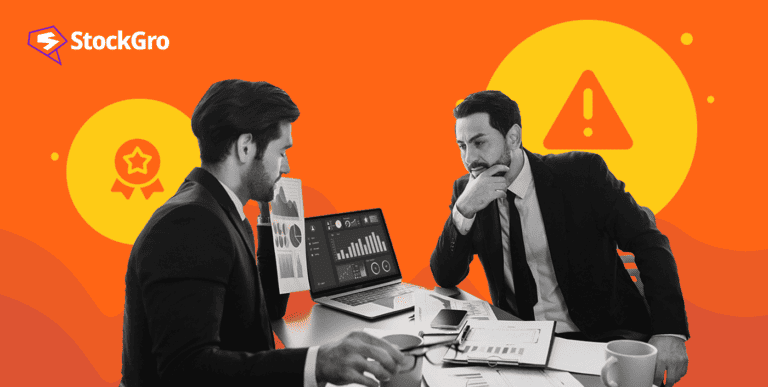
Pursuing entrepreneurship is akin to strapping yourself into a rollercoaster with extreme highs and lows. The journey requires braving frightening risks but can also unlock thrilling rewards for those driven enough to hang on tight. This blog breaks down the biggest challenges entrepreneurs face, as well as the most significant potential upsides. The goal is to provide transparency into the realities of the ride so readers can determine if its particular brand of turbulence and exhilaration suits them.
The risks all entrepreneurs must face
Financial risk
The most apparent risk is financial. The financial risk associated with entrepreneurship is massive. Not only are you risking your own money to start a business, but there’s also no guaranteed income, salaries, or stability like a regular 9 to 5 job. Statistically, over 50% of new startups fail within the first five years. Any unexpected costs or economic downturns could quickly put you out of business. You must be prepared to lose substantial sums of money potentially.
Opportunity cost
Besides direct financial costs, there are also substantial opportunity costs. Once you devote yourself full-time to your startup, you need more time spent advancing your career or education elsewhere. There’s always a risk that your startup may fail and leave you wishing you spent those years doing something else.
Work-life balance challenges
Becoming an entrepreneur also often leads to a worse work-life balance, especially in the early startup stages. The pressures of business risks and financial instability can be all-encompassing. Studies show entrepreneurs work longer hours and experience more work-life conflict than those comfortably employed by others. Preparing yourself for such demanding lifestyle sacrifices is critical.
Career instability
Working for yourself also means giving up the comfort and security of a stable career path. There’s risk associated with dumping years of effort spent developing your resume to pursue your unproven business ideas. Failure could leave your career prospects worse off than when you started.
Stress and mental health issues
The financial uncertainty, long hours, and workload tend to impact entrepreneurs’ mental health as well negatively. Entrepreneurs report higher levels of stress and depression. Without organisational support structures, the stresses of entrepreneurship can quickly lead to burnout. Maintaining physical health, strong relationships, and mental well-being requires significant work-life balancing efforts.
Decreased social life
Between financial instability restricting entertainment budgets and work overtaking personal time, many entrepreneurs need help with maintaining a strong social life. The flexibility to set your schedule is often countered by the inability to detach from constant business concerns hanging over your head. Friends and family can also grow tired of repeatedly hearing about and being asked to support your business or startup ventures.
Relationship sacrifices
Relatedly, the obsessiveness required to will a business strategy into existence can strain familial bonds. Couples must overcommunicate and set clear expectations to survive the chaos of the early entrepreneurial years. Divorce rates have been shown to sharply increase for couples where one spouse starts demanding new business opportunities.
Why become an entrepreneur despite the risks?
With all those substantial risks and startup challenges, why would anyone still decide to pursue entrepreneurship? Simply put, the potential rewards make it enticing for the right type of person.
Financial rewards
Foremost, while very difficult to achieve, successful entrepreneurs stand to gain tremendous financial rewards. Having equity share and full control over profits in a lucrative business can result in far higher compensation than working for someone else. The potential upside is exponentially higher than what any standard promotion could offer. While entrepreneurship demands taking on higher stress, risk, and workload than being an employee, the rewards of being an entrepreneur can more than compensate driven founders in the form of uncapped earnings, flexible lifestyles, etc.
Flexibility & freedom
Entrepreneurs also enjoy far greater flexibility and freedom over how they spend their time compared to traditional employment. You can structure your days around personal obligations and priorities rather than adhering to someone else’s schedule. The ability to work remotely helps improve overall life satisfaction and happiness despite the long hours.
Career satisfaction
Many entrepreneurs report higher job satisfaction despite their immense struggles. Bringing your ideas into reality provides greater meaning than carrying out someone else’s vision as an employee. Being fully empowered to make impactful decisions helps drive increased fulfilment. However, entrepreneurs also must grapple with amplified small business risks stemming from uncertainty, lack of steady paychecks, stressed resources, and single-leader distribution across every business function.
Societal contributions
Successful entrepreneurs also have the chance to create sweeping positive societal impacts through their innovations. New technologies, services, and jobs generated by startups have improved the quality of life for millions around the world. The chance to leave your mark and build something from the ground up fuels entrepreneurs’ passions.
Personal development
The journey with entrepreneurial skills also catalyses immense personal growth across skills like resourcefulness, decision-making under pressure, leadership, and persistence through adversity. Pushing yourself outside your comfort zone leads to heightened confidence and capability over time. Such personal development proves invaluable for life far beyond just business endeavours.
Building wealth
Over the long run, entrepreneurship offers a path to building sustainable multi-generational wealth not capped by salaries or corporate ladders. Massive windfalls from selling businesses can secure you and your family’s finances indefinitely.
Even smaller consistent profits flowed back into growth compounds substantially faster than individual incomes over decades. The outsized business rewards that successful ventures can provide in the form of explosive valuation exits or compounding reinvested annual earnings simply have no ceiling compared to trading labor for traditional wages.
The bottom line
As you reflect deeply on your personal risk tolerance and motivations behind starting a business, be honest with yourself. The entrepreneurship journey entails extreme financial, personal, and emotional risks – can you survive 1-2+ years with no income? Are you willing to sacrifice relationships and work-life balance?
At the same time, with an entrepreneurial mindset, achieving success can bring immense financial, professional, and personal rewards. Evaluate whether your confidence, skills, hunger for innovation, and risk management make you well-equipped to beat the odds.

